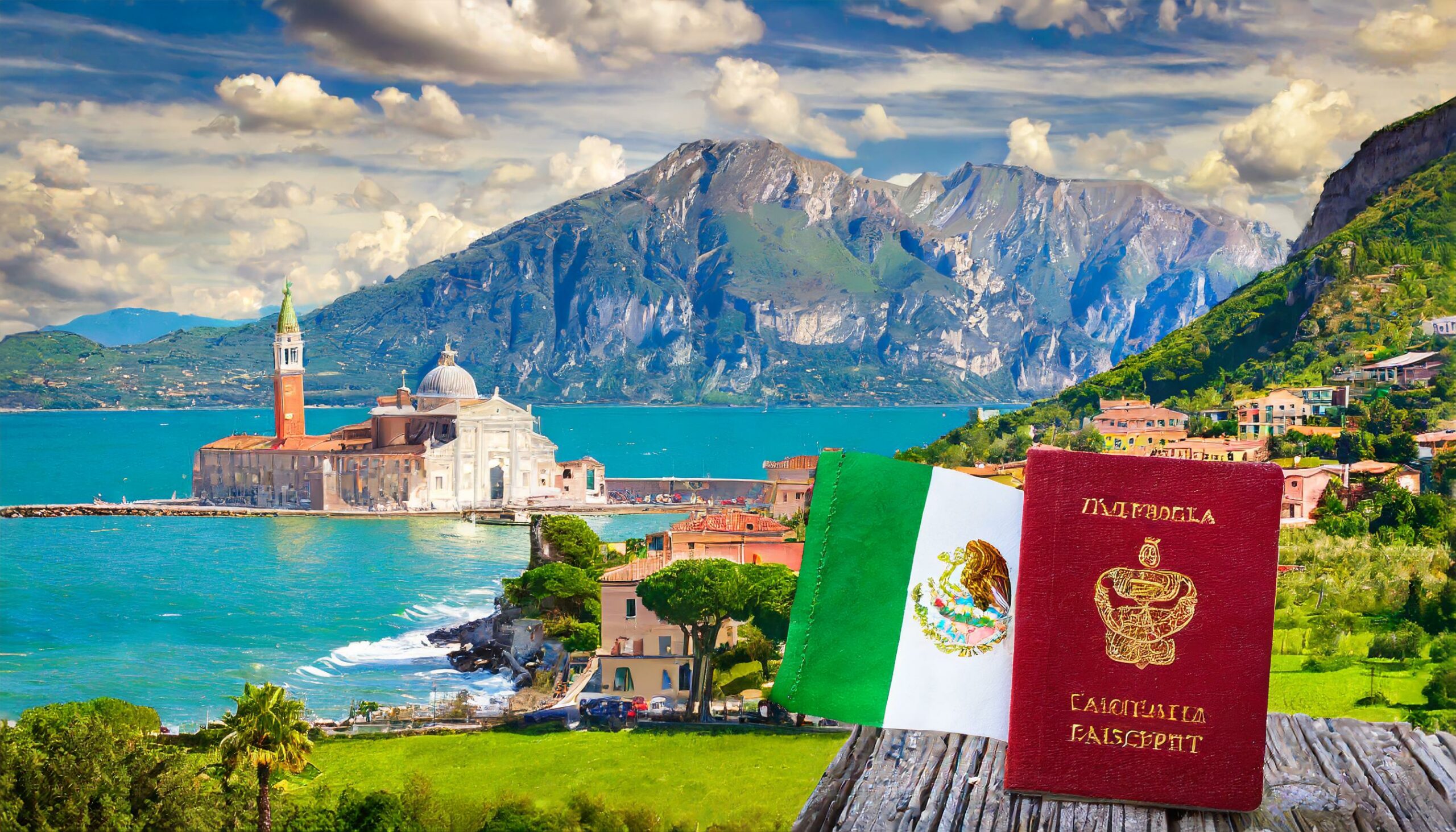The article “Obtaining Italian Citizenship by Descent from Great-Grandparent: Guide and News” aims to explore the ways through which individuals residing in the United States of America with Italian ancestors can claim Italian citizenship, focusing on the principle of jus sanguinis. We examine an overview of the current regulations, the necessary requirements, the challenges faced by descendants of Italian emigrants in obtaining the Italian passport, and the recent reform proposals that could negatively impact the process of acquiring citizenship through jus sanguinis in the future. This guide is aimed at those looking to connect with their Italian roots and understand the complex path to Italian citizenship.
The Principle of Jus Sanguinis. Documents needed for italian citizenship by descent from an Italian Great-Grandparent
The principle of jus sanguinis is fundamental to defining Italian citizenship. You can apply for Italian citizenship up to the 5th generation. Jus sanguinis is the principle of law that allows descendants of Italian citizens. Citizenship by ancestry has been recognized since the foundation of the Italian state in 1861. To prove descent, it is necessary to present official documents such as birth, marriage, and death certificates of the ancestors, which must be translated and legalized. The civil records of the ancestors serve to demonstrate that the line of descent from the Italian ancestor to the US applicant, is unbroken and that the ancestor never lost nor explicitly renounced Italian citizenship, even if they spent their entire life in the USA. The by italian bloodline is indissolubly linked to the fact that an individual was born in a Italy place and therefore transmits citizenship to their descendants. I prove my lineage for Italian citizenship for the sole fact that my great-grandfather was born in Italy with the birth, marriage and death documents. One cannot lose citizenship either by the decision of other States, where one has emigrated for example, nor by tacit consent. According to the Italian Supreme Court of Cassation, in fact, Italian citizenship can only be lost through explicit declaration and evident manifestation of the will of the Italian citizen. This is why this process of documentary collection requires precision and attention to detail that are necessary to meet the consular criteria of the Italian Ministry of Foreign Affairs examining the application.
Apply for Italian citizenship. Common Challenges for Descendants of Italian Emigrants in the USA in Obtaining Italian Citizenship.
Although obtaining Italian citizenship by descent from a great-grandparent should be an easy process, in fact, there are many difficulties encountered before obtaining the passport to be an Italian citizen. First of all, it is difficult to obtain the documents needed to prove that despite being born to American parents and raised in one of the USA states, one has the right to be recognized as Italian citizens thanks to the Italian great-grandparent. The documents are:
- birth, marriage, death certificate of the Italian great-grandfather or great-grandmother;
- translation and legalization of the obtained documents
Furthermore, it is important to remember that you can obtain Italian citizenship by descent, even it is through a italian great-grandmother who was married to an American.
The new rules proposal for Italian citizenship by descent
In fact, in addition to bureaucratic obstacles and those administrative ones of the Italian consulates that must examine citizenship applications, a reform proposal for citizenship by descent requires further requirements beyond that of descent, which are:
- the limitation of Italian descent only up to the third generation;
- the obligation to possess an Italian language diploma at B1 level;
- residence in Italy for at least one year before the application.
If, on one hand, these changes aim to strengthen the cultural and linguistic ties of the applicants with Italy, on the other, they limit the right to citizenship by descent. A right that even the Supreme Court of Cassation in Italy has established cannot be lost except by a voluntary decision and therefore, after proving that the great-grandparent never voluntarily renounced Italian citizenship, the passport must be recognized to the Italian descendant.
The loophole to have Italian citizenship. Legal Appeal to the Italian Court for the Recognition of Citizenship
Legal appeal in Italian courts can be a loophole to have Italian citizenship, a crucial step for descendants of Italian emigrants seeking recognition of citizenship by descent. This legal route offers an alternative to consular procedures, potentially bypassing the long waits and bureaucratic complexities imposed by the Italian state administration. Turning to an Italian court with the assistance and legal advice for the reform of Italian citizenship offered by the Damiania&Damiani Law Firm allows you to directly address legal issues by presenting the detailed case and speed up the process of recognition of citizenship based on individual rights and documentation history of the lineage.
Given the imminence of a reform proposal that could introduce more stringent criteria for the granting of Italian citizenship by descent, it is imperative to act without delay. Those entitled to citizenship through descent from an Italian ancestor should start the application process now, before these changes become law, to preserve their connection to Italy and guarantee their citizenship rights.
All the ways to claim Italian citizenship
Jus sanguinis and the right of descent is not the only way to claim Italian citizenship. Claiming Italian citizenship can be approached through several distinct pathways, each with its unique requirements and stipulations. Understanding these routes is crucial for individuals who wish to explore their eligibility for becoming Italian citizens.
One common method is through jus sanguinis or right of blood, which allows individuals to claim Italian citizenship if they have Italian ancestors. This lineage-based approach does not impose generational limits, but applicants must prove that their Italian ancestor retained their citizenship until the birth of the next in line. Documentation such as birth, marriage, and death certificates from Italy are essential in establishing this unbroken lineage. It is also crucial that the ancestor did not renounce their citizenship before emigrating or before the birth of their descendants.
Another avenue is through jus soli, or right of soil, which is relatively limited in Italy. This law grants citizenship to children born on Italian soil, but generally only if the parents are stateless, do not belong to any other nationality, or if the child cannot inherit any nationality from their parents. In 2015, there were proposals to make this route more inclusive; however, jus soli remains a minor component of Italian nationality law.
Marriage to an Italian citizen is another pathway. Non-Italian spouses of Italian citizens can apply for citizenship through naturalization after a certain period of legal residency in Italy—typically two years if residing in Italy, or three years if living abroad. The application process involves proving the marital relationship, continuous residence, and an adequate knowledge of the Italian language.
For those residing in Italy, citizenship can be acquired by residency after a legally specified period: ten years for non-EU citizens, four years for EU nationals, and five years for stateless persons or refugees. This pathway requires that the individual has an uninterrupted legal residence in Italy and fulfills integration measures, including economic activity or study, and proficiency in the Italian language.
Additionally, Italy offers the opportunity for individuals of Italian descent who have lost their citizenship to reclaim it under certain conditions. This could include former Italian citizens who renounced their citizenship to acquire another nationality before dual nationality was recognized by Italian law.
Lastly, special consideration is given to individuals who have made significant contributions to Italy, whether in cultural spheres, scientific research, or economic development. The President of the Republic has the authority to grant citizenship in such exceptional cases.
For individuals seeking to navigate these complex pathways to Italian citizenship, precise documentation and a thorough understanding of the legal requirements are imperative. Each route has its intricacies and may require substantial proof of eligibility and integration into Italian society.



 The Rise and Resilience of Gambling Apps: Why Betting and Casino Platforms Are Here to Stay
The Rise and Resilience of Gambling Apps: Why Betting and Casino Platforms Are Here to Stay




